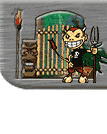





 |
 |
 |
||
 |
 |
 |
||
|
|
|
|
|
|
| Home : Ecological Module : Teaching Roles : Citizen | ||||||
Teacher as World Citizen
No man stands alone Each man's joy is joy to me Each man's grief is my own. The role
of Citizen of the World describes the teacher who has chosen to be one
with humanity; . . . monarchs or beggars, needy or rich, wise or ignorant,
unkempt, cunning, innocent; . . . brilliant, dyslexic, despondent, self
assured. Succinctly, being without prejudice is part of the duty and role
we will call upon ourselves. It is the journey we will give as a gift
and set of skills to our students - the empathy for the human condition,
the beauty of its created encapsulement, the vista opened when a child
is taught to see the perspective of others.
So, a teacher might be uncomfortable with the role of world citizen because:
have been taught from childhood about the superiority of a race, religious persuasion, class, caste or belief system uncertain of self so not safe to risk beyond the familiar may be underdeveloped with respect to moral reasoning; unlike physical development, moral reasoning or philosophical development is not an automatic occurrence modeling from others or pressure from a role model to conform to othersÔ ideas government or political group refuse permission for equality of treatment unrecognized norms or family expectations not yet explored lack of exposure to study of humanities - art, religion, history, music, literature During a Halloween activity a student started to freak out. We were doing a hallway bulletin board of a graveyard. We were putting the studentÔs names on the headstones. This one student refused to participate. "My mom would not like this!" he kept repeating. "Why?" I asked, trying to calm him down. He just repeated what he had said. the graveyard went on the wall. That afternoon the boyÔs mother came by. (Her son told her). She came to school to tell us that it was culturally taboo to put student names on headstones or even bring up the subject of death.
A studentÔs hair was accidentally cut in class. When the student got home she told her mother. The mother came to the school the moment the girl told her of the incident. We had to help the mother go through the trash and retrieve the hair. The mother said that she would destroy the hair at home. She explained to us that her people believe if someone else got the hair it could be used in a negative and evil ceremony to hurt her daughter.
When we
first arrived on the reservation, the parents and students talked about
the medicine man and his ceremonies. We thought this was dumb and part
of mysticism and magical thinking. Our Anglo way of looking at the world
almost caused us to miss out on the vital and valuable role a medicine
man plays in the community and culture. Hospitals in the area work in
conjunction with he medicine man. Many medicines we use today are from
the Native American medicine man. The yucca plant is one example of a
natural medicine. Imagine how wrong to would have been for us to cast
a negative view of this much needed person to the students.
When people consider moral dilemmas, it is their reasoning that is important, not their final decision, according to Lawrence Kohlberg. He theorized that people progress through three levels which encompass six stages as they develop abilities of moral reasoning. I. Preconventional Level -- Rules are set down by others.
Physical consequences of action determine its goodness or badness. Stage 2. Instrumental Relativist Orientation What's right is whatever satisfies one's own needs and occasionally the needs of others. Elements of fairness and reciprocity are present, but they are mostly interpreted in a "you scratch my back, I'll scratch yours"; fashion.
Good behavior is whatever pleases or helps others and is approved of by them. One earns approval by being "nice." Stage 4. "Law and Order" Orientation Right is doing one's duty, showing respect for authority, and maintaining the given social order for its own sake.
What's right is defined in terms of general individual rights and in terms of standards that have been agreed upon by the whole society. In contrast to Stage 4, laws are not "frozen" -- they can be changed for the good of society. Stage 6. Universal Ethical Principle Orientation What's right is defined by decision of conscience according to self-chosen ethical principles. These principles are abstract and ethical (such as the Golden Rule), not specific moral prescriptions - Kohlberg (1987) I know IÔm making progress when:
Prejudices,
it is well known, are most difficult to eradicate from the heart whose
soil has never been loosened or fertilized by education; they grow there,
firm as weeds among rocks.
Empowerment comes from the historic role. Teacher, guide, savant, all hold forth the recognition of calling students to personal greatness and expecting a sense of worth, dedication and dignity as portrayed by teacher. As is the case with all teaching roles and all teacher power, the first steps are the most difficult --- those which bring recognition of the onus or burden which comes with the power and authority vested in taking on the title Teacher. This is the greatest test of maturity, or the recognition of the call to teach, for it is to follow in the ample footfall of Buddha, Gandhi, Christ. Collect a
Once you
have completed this topic you should: |
||||||
| E-mail J'Anne Ellsworth at Janne.Ellsworth@nau.edu | ||||||
|
Course Created by J'Anne Ellsworth & Center for Technology Enhanced Learning Copyright
© 2001 Northern Arizona University |
 |
 |
 |
 |
 |
|